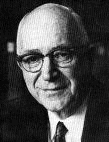A Quote by Terri E Apter
One of the main tasks of adolescence is to achieve an identity--not necessarily a knowledge of who we are, but a clarification ofthe range of what we might become, a set of self-references by which we can make sense of our responses, and justify our decisions and goals.
Related Quotes
If we are to achieve long-range goals, we must learn to set up and accomplish short-range goals that will move us along the way. If we do not consciously select our goals, we may be controlled by goals not of our own choosing - goals imposed by outside pressures (such as the expectations of others) or by our habits (such as procrastination) or by our desire for the approval of the world.
One has to know what is the ultimate goal of our life. The ultimate goal of our evolution is to become the Spirit, which is the reflection of God Almighty in our heart. That is self identity and also self knowledge. Also, one becomes one with the all-pervading Divine power of love. Our awareness is enlightened by the Spirit and Divine vibrations start flowing through our central nervous system enlightening our being.
The troubles of the 20th century are not unlike those of adolescence -- rapid growth beyond the ability of organizations to manage, uncontrollable emotion, and a desperate search for identity. Out of adolescence, however, comes maturity in which physical growth with all its attendant difficulties comes to an end, but in which growth continues in knowledge, in spirit, in community, and in love; it is to this that we look forward as a human race. This goal, once seen with our eyes, will draw our faltering feet toward it.
Seeing ourselves as we want to be is a key to personal growth. To successfully bring about change in our lives we need to implement a system of change that is build upon three assumptions. First Assumption: We change our lives by changing the attitudes of our minds. Second Assumption: We become what we think about all day long. Third Assumption: Our mind is naturally goal seeking. Please remember these assumptions. Our mind is always trying to accomplish something. We have a powerful machine wanting to achieve goals. It will set the goals that we allow it to.
Emotional dependence is the opposite of emotional strength. It means needing to have others to survive, wanting others to "do it for us," and depending on others to give us our self-image, make our decisions, and take care of us financially. When we are emotionally dependent, we look to others for our happiness, our concept of "self," and our emotional well-being. Such vulnerability necessitates a search for and dependence on outer support for a sense of our own worth.
The specific goals we set for ourselves are almost always subsidiary to our long range intentions. A good parent, a good neighbour, a good citizen, is not good because his specific goals are acceptable, but because his successive goals are ordered to a dependable and socially desirable set of values. (1947)
The only reason we really pursue goals is to cause ourselves to expand and grow. Achieving goals by themselves will never make us happy in the long term; it's who you become, as you overcome the obstacles necessary to achieve your goals, that can give you the deepest and most long-lasting sense of fulfillment.
The main object of the work was to present such a survey of the advances already made in physical knowledge, and of the mode in which they have been made, as might serve as a real and firm basis for our speculations concerning the progress of human knowledge, and the processes by which sciences are formed.
If we keep a goal firmly in mind, we will know when we have reached it. This gives us a sense of accomplishment and the challenge of establishing fresh, new goals - always keeping the long-range objective in mind. If we can state our goals clearly, we will gain a purpose and meaning in all our actions.
I believe you can train yourself to become a positive thinker, but you must cultivate a desire to develop the skill of setting personal worthy and realistic goals. I am so thoroughly convinced that if we don’t set goals in our life and learn how to master the technique of living to reach our goals, we can reach a ripe old age and look back on our life only to see that we reached but a small part of our full potential. When you learn to master the principle of setting a goal, you will then be able to make a great difference in the results you attain in this life.




































